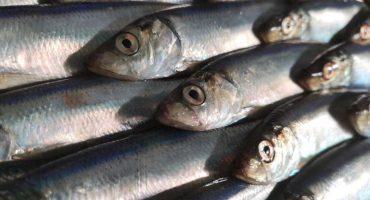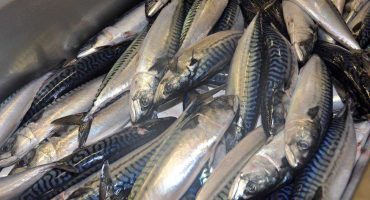
With the MSC certified North Sea herring fishery now underway, we have compiled some fascinating facts about this sustainable, delicious and nutritious fish.
- The importance of the herring to Scottish society and its cultural and economic development is immense, with there being evidence of herring fisheries in Scotland from Medieval times onwards.
- Traditionally known as the ‘silver darlings’, herring was the foundation of many of our fishing communities around the coast and became part of the beating heart of the nation. The late 1800s and early part of the 20th century was a boom time for the herring industry, where boats crowded cheek by jowl in harbours such as Wick, Fraserburgh, Anstruther and Lerwick, and ‘herring lassies’ would follow the boats around the coast to process the catch.
- Most of the herring landed were cured using a salt-based process perfected by Scottish curers, which involved gutting, washing, and packing the fish tightly in barrels with salt. This "Scottish cure" was highly regarded for preserving the herring, allowing it to be exported throughout Europe.
- In some ways, herring helped fuel the industrial revolution, being a key food staple that helped provide healthy and nutritious sustenance for workers in factories and fields across the land.
- As the 20th century progressed, the importance of herring as a foodstuff gradually declined, with whitefish such as cod and haddock becoming more popular with consumers.
- The herring stock collapsed in the late 1970s, and the fishery was closed until the early 1980s to enable recovery, which it has fully done so.
- The catching and processing sectors set up the Scottish Pelagic Sustainability Group (SPSG) in 2007 with the key aim of ensuring North Sea herring (and other pelagic fish such as mackerel and blue whiting) secured the MSC eco-label. This was first achieved for North Sea herring in 2008 and which has successfully achieved recertification ever since.
- North Sea herring is one of the longest running MSC certified fisheries in the UK. Such recognition is testament to the hard work of Scottish herring fishers in putting sustainability at the heart of their operations.
- North Sea herring is the only herring fishery in the north-east Atlantic that is independently certified by the MSC.
- The Scottish Pelagic Fishermen’s Association has its own Chief Scientific Officer to spearhead science initiatives.
- The Scottish pelagic sector was instrumental in the creation of the of the Scottish Pelagic Industry-Science Data Collection Programme, which has now become the main source of biological data on pelagic fish catches in Scotland, and which is used in the ICES stock assessment process.
- SPSG won the MSC UK Ocean Leadership award in 2022 in recognition for the efforts they have gone into conducting an industry-science data collection programme across their pelagic operations.
- Research has shown that Scottish caught pelagic fish have an extremely low carbon footprint compared to most other forms of protein production, including many types of plant protein sources.
- The Scottish North Sea herring fishery is a ‘clean’ fishery with virtually no by-catch of other species or under-sized fish.
- The mid-water trawls and purse seine nets used to catch North Sea herring do not touch the seabed.
- There are 21 vessels in the Scottish pelagic fleet. The fleet is very modern with vessel size ranging from 60-85 metres. All the crew on these vessels are local and the boats are family-owned businesses that have been working in the industry for generations.
- All the boats in the fleet have the most modern fish handling systems to ensure optimum quality of the catch, including refrigerated seawater tanks to store the fish.
- Sustainable, nutritious, delicious, and great value for money, herring is full of essential vitamins, minerals and other nutrients, as well as heart-healthy Omega-3 fatty acids.
- In the kitchen, a popular dish and traditional dish is herrings in oatmeal, and the fish also lends itself to a whole range of other recipe ideas. Smoked herring – kippers – are a great breakfast treat, and marinated herrings are gaining in popularity all the time.
- In some countries, most notably the Netherlands, Germany, Poland and the Baltic states, Scottish herring is extrememly popular and forms an important part of the herring export business from Scotland.
- UK health experts recommend that people should eat two portions of fish per week, one of which should be an oily fish such as herring.
- The herring catching season generally runs from June until early September, with the initial catches comprising ‘maatjes herring’ – the first, high-fat content summer-caught herring of the year, which one Scottish boat specialises in catching. The Dutch revere maatjes herring, which is a lightly brined and eaten raw.



